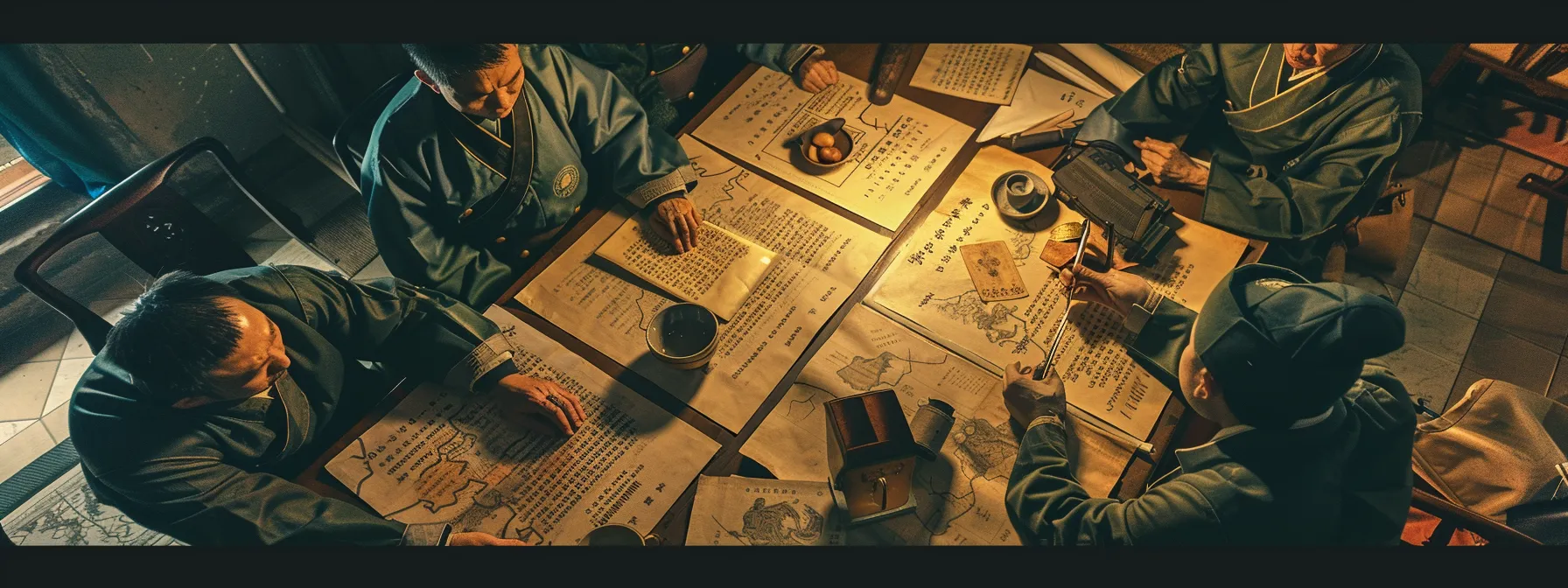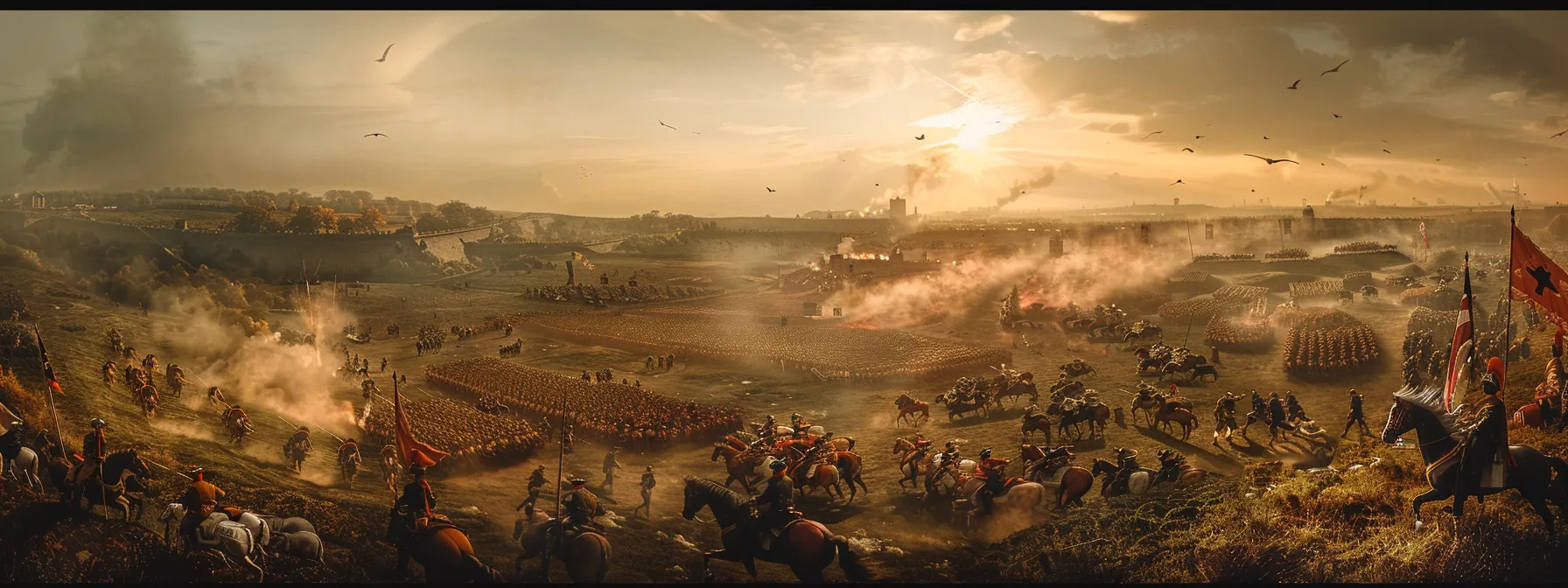Disclaimer: We sometimes use affiliate links in our content. For more information, visit our Disclaimer Page.
Sun Tzu’s teachings in the Art of War have shaped military strategies for centuries, yet many wonder how these principles apply today. This article explores Sun Tzu’s core ideas, the historical impact of his work, and how modern military forces can integrate these strategies into their doctrines. Readers will gain insights into contemporary global conflicts and learn practical applications of Sun Tzu’s strategies beyond traditional warfare. By understanding these elements, military professionals can effectively address challenges similar to those faced in significant battles, including the Battle of Zama and tactics employed by leaders like Julius Caesar and Zhuge Liang.
Key Takeaways
- Sun Tzu’s principles in “The Art of War” guide both military and business strategy today
- Flexibility and adaptability are key components for success in modern warfare scenarios
- Deception and psychological tactics remain essential tools in military operations to influence outcomes
- Understanding both the enemy and oneself is critical for effective strategic planning
- Historical military leaders have successfully integrated Sun Tzu’s teachings into their strategies across conflicts
Understanding Sun Tzu’s Core Principles in the Art of War

Sun Tzu’s tactical insights in “The Art of War” remain crucial for shaping contemporary military strategy. Key concepts include the importance of deception in warfare, the necessity for flexibility and adaptability on the battlefield, and the effective use of psychological warfare tactics. Additionally, strategic planning and timing, along with the principle of knowing both the enemy and oneself, underpin successful military operations. Each of these principles offers valuable lessons for modern strategists, including historical figures like Alfred Thayer Mahan, particularly in the context of utilizing advanced technology such as aircraft.
Grasping the Importance of Deception in Warfare
Deception stands as a fundamental aspect of military strategy, as emphasized by Sun Tzu in “The Art of War.” In contemporary contexts, this principle can be observed at the operational level of war, where military coalitions, such as those involving navy forces during naval warfare, utilize misinformation to mislead adversaries. For instance, during the Korean War, strategic deception played a pivotal role in outmaneuvering enemy forces, demonstrating how effective tactics can turn the tide of conflict by creating uncertainty and exploiting vulnerabilities.
Embracing Flexibility and Adaptability on the Battlefield
Flexibility and adaptability are critical components in both historic and modern military strategy, echoing Sun Tzu’s teachings. Historically, leaders like Alexander the Great implemented these concepts effectively, utilizing strategies such as the pincer movement to outmaneuver larger enemies. In contemporary contexts, figures like Ronald Reagan highlighted the importance of adaptability in military operations, recognizing that successful militias must adjust tactics to meet evolving challenges on the battlefield:
- Sun Tzu emphasized the need for strategic flexibility.
- Alexander the Great’s use of the pincer movement illustrates historical adaptability.
- Ronald Reagan’s policies underscore the importance of responding to dynamic threats.
Leveraging Psychological Warfare Tactics
Psychological warfare tactics are essential tools in military strategy as highlighted by Sun Tzu’s teachings. By understanding the mindset of both the enemy and one’s own troops, commanders can leverage tactics that influence perception and morale to secure victory. Historical examples, such as the psychological operations utilized during the American Revolution, showcased how misinformation and strategic messaging effectively demoralized the enemy’s corps, leading to critical advantages on the battlefield:
The Role of Strategic Planning and Timing
Strategic planning and timing are critical elements in military operations, as emphasized by Sun Tzu’s writings. In contemporary contexts, nations that apply these principles effectively can deploy their resources, including artillery and combined arms, to maximize impact on the battlefield. For instance, the royal navy has often utilized precise planning and timing in their naval engagements, ensuring that operations align with broader democratic objectives, leading to successful outcomes in conflicts.
Knowing the Enemy and Oneself for Victory
Knowing the enemy and oneself is a core principle established by Sun Tzu, essential for achieving victory in warfare. Historical figures like Scipio Africanus exemplified this principle during the Battle of Cannae, where understanding the opposing army’s tactics allowed them to successfully counter Hannibal’s forces. In modern contexts, integrating psychological warfare and effective policy decisions with strategies like amphibious warfare can enhance a military’s ability to anticipate and respond to threats, ensuring superior preparedness and influence on the outcome of conflicts:
Sun Tzu’s ideas shaped the battlefield, offering wisdom that resonates through time. The lasting influence of “The Art of War” on military strategy opens a door to understanding its profound historical impact.
The Historical Impact of the Art of War on Military Strategy

Sun Tzu’s “The Art of War” has profoundly influenced military strategy, shaping ancient Chinese warfare tactics and informing military leaders throughout history. This subsection will examine its introduction to Western military thought, present case studies that demonstrate Sun Tzu’s strategies in action, and highlight the evolution of warfare principles inspired by these teachings. Insights into logistics and the role of the commander during combat will showcase the ongoing relevance of these strategies in contemporary military operations.
Influence on Ancient Chinese Warfare Tactics
Sun Tzu’s “The Art of War” significantly shaped ancient Chinese warfare tactics by establishing foundational principles that influenced the military doctrines of the time. His emphasis on the role of the brigade and regiment showcased the importance of organizational structure in effectively mobilizing reservists and troops for strategic advantages. By integrating these tactics into a comprehensive grand strategy, Chinese commanders were able to optimize their forces and respond dynamically to threats, ensuring that their military operations were both efficient and effective in achieving long-term objectives.
Adoption by Military Leaders Throughout History
Many military leaders throughout history have adopted principles from Sun Tzu’s “The Art of War” to enhance their strategic thinking. Carl von Clausewitz, for instance, integrated Sun Tzu’s ideas on the interplay between military strategy and politics into his own theories of warfare. This influence can also be observed during significant events like World War I, where commanders utilized these ancient tactics to address complex battlefield situations, illustrating the timeless relevance of Sun Tzu’s teachings in both ancient history and modern military practice:
- Influence of Sun Tzu on Carl von Clausewitz’s strategic theories.
- Application of Sun Tzu’s principles by military leaders in World War I.
- Relevance of The Art of War in understanding the dynamics of politics and warfare.
Introduction to Western Military Thought
Sun Tzu’s influence on Western military thought is profound and enduring, particularly seen in the strategies employed by historical figures such as Genghis Khan and Frederick the Great. His principles, emphasized through the lens of adaptability and strategic planning, shaped military operations in various conflicts, including the Vietnam War and campaigns in North Africa. These leaders recognized the relevance of Sun Tzu’s teachings, effectively integrating them into their own strategies to navigate the complexities of warfare and achieve tactical advantages on the battlefield.
Case Studies Demonstrating Sun Tzu’s Strategies in Action
Case studies throughout history illustrate the enduring relevance of Sun Tzu’s strategies in military engagements. One notable example is the United States Marine Corps, which has effectively employed principles from “The Art of War” in their approach to diplomacy and conflict resolution, reinforcing the importance of strategic planning in their infantry operations. Additionally, during the Italian campaign of World War II, Allied forces utilized terrain advantages similar to strategies employed in the Alps, successfully integrating deception and timing to achieve peace and victory:
Evolution of Warfare Principles Inspired by Sun Tzu
The evolution of warfare principles inspired by Sun Tzu’s teachings has significantly shaped modern military strategy and foreign policy. For example, the Roman army incorporated strategic flexibility and deception into their operations, which allowed them to adapt to various combat scenarios effectively. Additionally, during the Cold War, many military leaders and policymakers drew from Sun Tzu’s philosophy to craft strategies that addressed both military conflicts and geopolitical tensions, enhancing the effectiveness of national defense while engaging with civilian populations in complex environments.
The echoes of Sun Tzu’s wisdom still resonate. As the battlefield has evolved, so too must the strategies that guide modern military thought.
Integrating Sun Tzu’s Strategies Into Modern Military Doctrine

Contemporary military doctrine increasingly incorporates Sun Tzu’s strategies from “The Art of War” within various aspects of training and operations. This section will discuss how principles from Sun Tzu are applied in modern warfare scenarios, influence military leadership and decision-making, and adapt to technological advancements. It will also explore how these insights enhance joint operations, particularly in situations like the counterattack during the invasion of Poland, ensuring officers remain prepared for evolving conflicts.
Incorporation Into Contemporary Military Training
Modern military training increasingly emphasizes the integration of Sun Tzu’s principles, particularly in developing effective strategies for diverse combat scenarios. For example, during the American Civil War, the innovative use of cavalry reflected the importance of adaptability highlighted by military theorists, including Sima Yi, in their evaluation of historical conflicts. Additionally, lessons learned from the operational experiences of the Soviet Union underscore the necessity for military forces to be prepared for rapid changes on the battlefield, ensuring that training programs address both conventional tactics and the unpredictability of modern warfare.
Application in Modern Warfare Scenarios
The application of Sun Tzu’s strategies in modern warfare scenarios is evident in the evolving tactics employed by contemporary military forces. For instance, lessons learned from the Napoleonic Wars showcase the effectiveness of combining mobility and firepower, reflecting principles that resonate with today’s use of tanks in battle and during sieges. By understanding the terrain, as demonstrated during the campaigns in Gaul, modern armies can integrate strategic flexibility and deception to enhance their operational success and adapt to the complexities of modern conflicts.
Influence on Military Leadership and Decision-Making
Sun Tzu’s principles significantly shape military leadership and decision-making in contemporary strategy, emphasizing the importance of strategic planning. Military leaders draw inspiration from historical examples, such as those from Macedonia, where decisive tactics turned ordinary soldiers into effective combat units. The revolutionary ideas presented in “The Art of War” guide current military commanders as they navigate complex operational landscapes, ensuring that their strategies remain adaptable and responsive to evolving challenges on the battlefield.
Adapting Principles to Technological Advancements
Adapting Sun Tzu’s principles to technological advancements remains crucial for modern military strategy. The Roman Republic demonstrated strategic ingenuity by integrating new technologies into their forces, which enhanced the effectiveness of their battalions in various conflicts, including the Gallic Wars. Similarly, understanding the dynamics of the Cuban Missile Crisis required military leaders to incorporate innovative strategies that reflected the lessons from Sun Tzu, showcasing the ongoing relevance of these principles in navigating contemporary challenges.
Enhancing Joint Operations With Sun Tzu’s Insights
Integrating Sun Tzu’s insights into joint operations significantly enhances the effectiveness of military strategies on the battlefield. For example, the use of deception as outlined in “The Art of War” allows allied forces to mislead adversaries, creating opportunities for strategic advantage. In active duty scenarios, such as operations in Iraq, implementing these principles helps diverse military branches coordinate more effectively, ensuring that their combined efforts lead to successful outcomes against complex threats.
Military leaders today still look to the past for answers. The lessons of ancient battles shape modern conflicts, revealing Sun Tzu’s lasting impact in a changing world.
Sun Tzu’s Influence on Contemporary Global Conflicts

Analyzing contemporary global conflicts through Sun Tzu’s lens reveals the enduring relevance of his strategies. This section will explore the application of asymmetric warfare seen in the war in Afghanistan, employing innovative cyber warfare tactics that align with Sun Tzu’s teachings. It will also examine counterterrorism strategies and psychological operations, along with peacekeeping efforts that reflect insights from renowned figures like Lawrence Freedman and famous leaders throughout history.
Analyzing Recent Conflicts Through Sun Tzu’s Lens
Recent global conflicts, particularly in Afghanistan and Iraq, demonstrate the relevance of Sun Tzu’s strategies, especially around deception and psychological warfare. Forces engaged in asymmetric warfare have employed tactics that reflect Sun Tzu’s emphasis on understanding the enemy’s weaknesses. For instance, utilizing information operations and cyber warfare has allowed smaller groups to create significant disruptions, aligning with Sun Tzu’s principle that knowledge is power. This approach highlights the need for modern military leaders to adapt traditional strategies to contemporary contexts, ensuring operational effectiveness while navigating complex environments.
Employing Asymmetric Warfare Strategies
Employing asymmetric warfare strategies embodies the principles laid out by Sun Tzu, illustrating the importance of adaptability in modern military conflicts. In recent years, smaller, less conventional forces have successfully challenged larger armies by utilizing guerrilla tactics, information warfare, and cyber capabilities to exploit vulnerabilities. This approach has shown that understanding the enemy’s weaknesses and leveraging unconventional methods can lead to significant victories, thereby demonstrating how Sun Tzu’s insights remain relevant today:
- Smaller forces leverage guerrilla tactics to outmaneuver larger adversaries.
- Information warfare enhances the ability to disrupt enemy operations.
- Cyber capabilities provide a platform for asymmetric engagements in modern conflicts.
Cyber Warfare Tactics Aligned With Sun Tzu’s Teachings
In contemporary conflicts, cyber warfare tactics effectively align with Sun Tzu’s teachings on strategy and deception. By exploiting vulnerabilities in an adversary’s information systems, military and intelligence organizations can disrupt operations and manipulate public perception, mirroring Sun Tzu’s focus on understanding the enemy’s weaknesses. The ability to conduct cyber operations from a distance while maintaining anonymity embodies the essence of strategic deception, providing nations with a powerful tool to achieve tactical advantages without traditional military engagement:
Counterterrorism Strategies and Psychological Operations
Counterterrorism strategies today heavily rely on psychological operations that echo Sun Tzu’s principles. By understanding the motivations and narratives of terrorist groups, military leaders can craft messages to undermine their legitimacy and influence public perception. For instance, leveraging social media as a tool for counter-narratives helps discredit extremist ideologies, ultimately contributing to the reduction of recruitment efforts among vulnerable populations:
Peacekeeping and Conflict Resolution Applications
Sun Tzu’s principles are increasingly relevant in peacekeeping and conflict resolution, emphasizing the necessity of understanding both the adversary and the environment. Military leaders today apply strategies from “The Art of War” to foster dialogue and cooperation among conflicting parties, utilizing tactics such as negotiation and mediation. These approaches help build trust and create sustainable solutions in unstable regions, demonstrating that strategic foresight can significantly enhance peacekeeping efforts.
Many great strategists have shaped the art of war throughout history. A closer look at Sun Tzu alongside these figures reveals the depth and breadth of military thought that still influences modern tactics.
Comparing Sun Tzu With Other Historical Military Strategists

This section examines Sun Tzu’s military strategies in relation to other historical figures, highlighting important contrasts and similarities. It begins with a discussion on Carl Von Clausewitz’s military theories, followed by lessons from Napoleon Bonaparte that align with Sun Tzu’s principles. Additionally, parallels with the strategies of Alexander the Great illustrate the integration of diverse philosophies that remain relevant for modern military strategy, ultimately evaluating the universal significance of ancient approaches in contemporary contexts.
Contrasting With Carl Von Clausewitz’s Military Theories
Sun Tzu’s military strategies focus on the importance of deception, adaptability, and understanding both the enemy and oneself, which starkly contrasts with Carl von Clausewitz’s emphasis on the chaos of war and the friction that arises during military operations. Clausewitz viewed war as a continuation of politics by other means, often prioritizing the moral dimensions and the unpredictable nature of human factors, while Sun Tzu advocated for preemptive tactics aimed at striking decisively before conflict escalates. This distinction shapes contemporary military thought, as modern leaders integrate Sun Tzu’s principles into their strategic planning to enhance effectiveness, while also considering Clausewitz’s insights on the complex political landscape influencing military actions.
Lessons From Napoleon Bonaparte in Relation to Sun Tzu
Napoleon Bonaparte’s military strategies reflect significant parallels with Sun Tzu’s principles, particularly regarding the importance of speed and decisive action. Both strategists understood that rapid maneuvers could disrupt an enemy’s plans and create opportunities for victory. Napoleon’s emphasis on using concentrated force at critical points aligns with Sun Tzu’s teachings on striking when the enemy is unprepared, demonstrating how these timeless concepts continue to influence modern military operations and teaching contemporary leaders the value of agility in warfare.
Parallels With Alexander the Great’s Strategies
Alexander the Great’s military strategies exhibit notable parallels with Sun Tzu’s teachings, particularly in the realm of flexibility and rapid maneuvering. Both leaders emphasized the need to adapt quickly to changing battlefield conditions, enabling them to exploit enemy weaknesses effectively. For instance, Alexander’s famous use of the double envelopment tactic during the Battle of Gaugamela mirrors Sun Tzu’s principle of outflanking the opponent, highlighting the enduring relevance of these strategies in modern military doctrine.
Integrating Diverse Philosophies for Modern Strategy
Integrating diverse military philosophies is essential for modern strategy, as it allows contemporary leaders to draw from various historical insights, including those from Sun Tzu, Clausewitz, and Napoleon. By combining different approaches, military strategists can develop adaptable plans that address the complexities of today’s warfare, such as fluctuating geopolitical landscapes and technological advancements. This blending of strategies not only enhances tactical effectiveness but also prepares leaders to make informed decisions based on a comprehensive understanding of both historical and current military dynamics:
Evaluating the Universal Relevance of Ancient Strategies
Evaluating the universal relevance of ancient strategies, such as those articulated by Sun Tzu, reveals their continued impact on modern military planning. Historical contexts provide insights into timeless principles, including adaptability, strategic deception, and understanding both one’s own forces and the enemy. By studying these strategies, contemporary leaders can draw valuable lessons that inform effective decision-making in today’s complex geopolitical landscape, thereby enhancing operational readiness and effectiveness in various conflict scenarios.
Sun Tzu’s lessons extend beyond war, offering insights for everyday life. Understanding his strategies can help navigate personal challenges and conflicts.
Applying the Art of War Beyond the Battlefield

Sun Tzu’s “The Art of War” extends its influence beyond military applications, finding relevance in various fields. This section will explore how his principles inform business strategy and management practices, shape diplomatic relations, enhance personal development, and underscore ethical considerations in warfare strategies. Additionally, it will address the cultural impact on literature and the arts, highlighting the broad applicability of Sun Tzu’s insights.
Influence on Business Strategy and Management Practices
Sun Tzu’s principles from “The Art of War” have significantly influenced business strategy and management practices, providing valuable insights for leaders. By emphasizing the importance of understanding both the competitive landscape and their own organization’s strengths and weaknesses, businesses can better navigate challenges. For example, companies often apply strategies of adaptability and strategic planning to anticipate market shifts and make informed decisions, much like military leaders adjust their tactics based on battlefield dynamics. This approach not only enhances operational effectiveness but also guides organizations in fostering a proactive corporate culture.
Sun Tzu’s Principles in Diplomacy and International Relations
Sun Tzu’s principles from “The Art of War” resonate deeply within the realms of diplomacy and international relations, reflecting the importance of strategy and careful planning. Modern leaders can draw from his insights by employing tactics such as deception and psychological warfare to shape negotiations and influence outcome perceptions. For instance, successful diplomatic negotiations often involve understanding the motives and weaknesses of counterparts while positioning one’s own stance strategically, highlighting the relevance of Sun Tzu’s emphasis on knowledge and adaptability in achieving favorable agreements:
- Understanding the adversary’s goals.
- Employing strategic communication to shape perceptions.
- Using knowledge to inform negotiation tactics.
Personal Development and Leadership Skills Enhancement
Integrating the principles from Sun Tzu’s “The Art of War” into personal development can significantly enhance leadership skills. By emphasizing self-awareness, adaptability, and strategic thinking, leaders can cultivate a mindset that allows them to navigate challenges effectively. For instance, understanding one’s own strengths and weaknesses enables professionals to make informed decisions, while the ability to adapt to changing environments fosters resilience in dynamic situations, a core component of effective leadership.
Ethical Considerations of Applying Warfare Strategies
The ethical considerations of applying warfare strategies, particularly those inspired by Sun Tzu’s “The Art of War,” play a crucial role in contemporary military operations. Modern military leaders must navigate the balance between achieving strategic objectives and adhering to ethical standards that govern warfare. This includes respecting international laws and human rights, ensuring that tactics such as deception or psychological operations do not lead to unwarranted harm or suffering. Addressing these ethical dilemmas is essential for maintaining legitimacy and support among both military personnel and the public.
- Understanding the importance of adhering to ethical standards in military strategy.
- Balancing strategic objectives with respect for human rights and international laws.
- Maintaining public support through ethical military operations.
Cultural Impact on Literature and the Arts
Sun Tzu’s “The Art of War” has left a significant cultural impact on literature and the arts, inspiring countless authors, filmmakers, and artists. Many creators have drawn on its themes of strategy and tactics to shape narratives that explore human conflict, leadership, and the moral complexities of warfare. For example, contemporary novels and films often incorporate Sun Tzu’s principles to enhance character development and plot lines, reflecting the ongoing relevance of his teachings in understanding human motivations and societal dynamics.
Conclusion
Sun Tzu’s influence remains vital in shaping contemporary military strategy, emphasizing adaptability, strategic deception, and a thorough understanding of both allies and adversaries. His principles provide actionable insights that enhance modern military operations, promoting effective decision-making in complex environments. By integrating these timeless teachings, military leaders can navigate challenges more effectively and prepare for evolving threats. Ultimately, “The Art of War” serves as a crucial framework for developing resilient and responsive military strategies that resonate across various domains.





